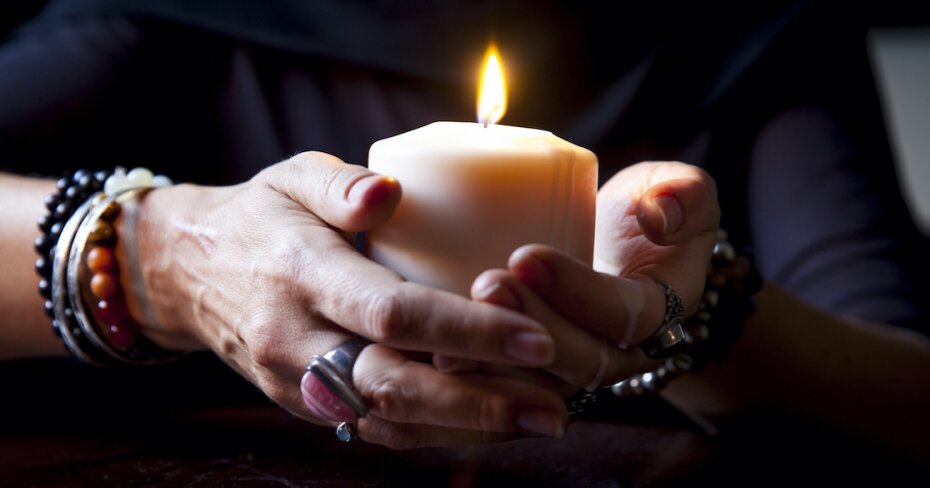Trauma doesn't only take a mental toll. It's expensive, too
By: Lisa Coxon on January 6, 2020
The Centre for Addiction and Mental Health (CAMH) defines trauma as “the lasting emotional response that often results from living through a distressing event.”
The event — or, perhaps, the injury — is what incites the trauma. The injury can be physical. The injury can be emotional. The injury can be sexual. Oftentimes, the three will overlap. “Long after the traumatic event occurs,” the CAMH website reads, “people… can often feel shame, helplessness, powerlessness and intense fear.” The road to healing those emotions and injuries takes time — more for some people than for others.
But no matter who you are, it also takes money.
On Oct. 4, women’s rights activist and public educator Julie Lalonde tweeted: “Healing from trauma is very expensive. That’s it.”
Lalonde was referring to healing from gender-based trauma specifically, such as sexual violence. She knows this reality well, not just as part of her own recovery from intimate partner violence, stalking, and sexual violence, but in the work she does with other survivors of gender-based violence.
“Sexual assault is a crime in which most of the cost is shouldered by the victim,” says Lalonde.
“If you access the right services and get the right support, people can heal. But we do know that if you’re not able to access adequate services, then you’re actually going to end up paying more in the long run because you’re going to be suffering the consequences for years and years.”
The many costs of healing
Making a full recovery from physical or emotional trauma, in other words, is as much an emotional process as it is a financial one.
It often involves shelling out a significant amount of money over a long period of time for an assortment of services, including:
- Therapy (the average cost of psychotherapy in Canada, which isn’t always covered by most group insurance plans, can range from $125-175 per session; and the Ontario Psychological Association recommends that psychologists charge $225 an hour).
- Physical therapy, such as physio, seeing a chiropractor or getting a massage for physical symptoms or injuries directly or indirectly related to the trauma
- Parking, gas, or public transportation to get to medical appointments, court dates, lawyer’s office, etc.
- Childcare, if, for instance, you can’t bring your children to your medical appointments, lawyer’s office, court dates, etc.
- Lost wages due to missing work for appointments, court dates, trials, etc.
- First and last month’s rent, if you need to leave an abusive situation and find a new place to live.
- Legal fees, if you’re seeking legal action against an abuser.
- Medications and medical accessories that may not be covered fully or at all under a group or provincial health insurance plan.
There are also the less obvious costs, too. Lalonde, for instance, was stalked by her ex-partner and as a result, had to redirect her mail. “I have to pay about $150 a year to send my mail to a P.O. box,” she says, “which is no small amount of money — especially when I was 21 and an undergraduate student with not a lot of money to my name. But it was either that or this person was going to access my information.”
If you’re not able to access adequate services, then you’re actually going to end up paying more in the long run
It’s also not unusual for those experiencing sexual violence at the hands of a partner to incur significant costs just trying to get out of the situation. For example, Lalonde has worked with women who feel like they need to keep living with their abuser until their lease becomes month-to-month so that their abuser can’t come after them for rent they owe if they try to break the lease before it’s up. Sometimes the only way to afford first and last month’s rent for a place of their own is with debt.
“There are costs you’re incurring before you even sit with the reality of ‘Oh, I experienced something pretty heavy and I have to talk to someone about it,’” says Lalonde.
“‘I’m already in debt from getting out of that situation, I can’t even fathom spending $200 an hour to talk about it.’”
Accessibility itself is a major cost
The costs of trauma can rise even more depending on where (and how) you live. Urban centres tend to boast an abundance of therapists and medical professionals, such as chiropractors, massage therapists, and so on. But that oversaturation means their prices are often at the top of the ceiling.
Those living in rural areas, on the other hand, have fewer options available to them, and can face both more challenges in accessing help to begin with, but also higher costs if they need to seek treatment outside their community.
“The barriers are pretty extensive,” says Lalonde. “There’s no public transportation, so you have to have enough money to have a car and access to gas money to get to your appointments. Or you have to feel comfortable disclosing to someone else why you need a ride in order to get to your appointment.”
“Sometimes it’s an hour drive to get to an hour-long appointment, and then an hour back. [For a parent], that’s three hours of childcare.”
Those living in remote areas, such as northern parts of the country, are also at a significant disadvantage, thanks to severe winter weather that can make travelling to appointments impossible or extremely time-consuming. And in smaller communities, there’s also the added issue of stigma. “Many people feel more comfortable actually leaving their community to access the service because of confidentiality reasons,” says Lalonde.
I think my therapist deserves what she charges… she’s saving lives. But it’s not accessible
Someone living in a tight-knit rural area might prefer to see a therapist in a nearby town or city, either in person or using virtual means. If they’re going to attend the appointment in person, that means arranging for transportation to these places and maybe even paying higher prices for therapists in urban areas.
While there are services and shelters in rural communities, Lalonde says most are privatized and/or bogged down by months-long wait lists.
“Rural communities have some of the highest concentrations of poverty in Canada,” she says. “Marginalized women live the most at risk of experiencing violence and yet they’re the least likely to be able to access services. But even wealthy women have a heck of a time accessing what they need because it's incredibly expensive.”
We all pay for trauma
We can’t, however, talk about the individual costs associated with healing from trauma without also talking about the collective costs.
Women and Gender Equality Canada (formerly Status of Women Canada), pegs the economic toll of intimate partner violence and adult sexual assault at more than $12 billion a year. That works out to around $334 per Canadian per year, according to a 2013 report by the late Kate McInturff, who was a researcher at the Canadian Centre for Policy Alternatives.
One of the biggest direct costs associated with healing from trauma is accessing mental healthcare, such as talk therapy. But the solution isn’t just as simple as making these services cheaper.
“This is the tension that I experience as a feminist,” says Lalonde. “I think my therapist deserves what she charges… I don’t want to pay her less than what she’s worth — she’s saving lives. But it’s not accessible.”
The answer then, Lalonde says, isn’t reducing the amount of money therapists can charge. It’s introducing support at the federal level, in the form of subsidies, for example.
“We’ve been demanding a national action plan on violence against women for years,” she says, adding that the Trudeau government promised a semblance of something in 2015 when it was elected to power, but nothing has come to fruition.
Until the government sees the value in pumping serious funds into things like mental health services, Lalonde says, healing from trauma will continue to be a major cost to the public.
“The trauma that women experience as a result of violence — we all pay for it,” she says.
“So if I can't win you over with ‘let me tell you about the women whose lives have been ruined or the women who have been killed,’ then I will tell you it’s cheaper for you to give a damn.”


